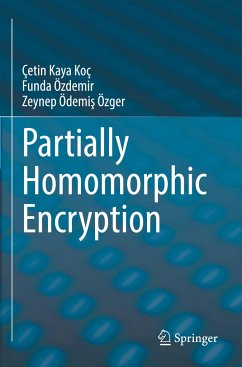This monograph describes and implements partially homomorphic encryption functions using a unified notation. After introducing the appropriate mathematical background, the authors offer a systematic examination of the following known algorithms: Rivest-Shamir-Adleman; Goldwasser-Micali; ElGamal; Benaloh; Naccache-Stern; Okamoto-Uchiyama; Paillier; Damgaard-Jurik; Boneh-Goh-Nissim; and Sander-Young-Yung.
Over recent years partially and fully homomorphic encryption algorithms have been proposed and researchers have addressed issues related to their formulation, arithmetic, efficiency and security. Formidable efficiency barriers remain, but we now have a variety of algorithms that can be applied to various private computation problems in healthcare, finance and national security, and studying these functions may help us to understand the difficulties ahead.
The book is valuable for researchers and graduate students in Computer Science, Engineering, and Mathematics who are engaged with Cryptology.
Over recent years partially and fully homomorphic encryption algorithms have been proposed and researchers have addressed issues related to their formulation, arithmetic, efficiency and security. Formidable efficiency barriers remain, but we now have a variety of algorithms that can be applied to various private computation problems in healthcare, finance and national security, and studying these functions may help us to understand the difficulties ahead.
The book is valuable for researchers and graduate students in Computer Science, Engineering, and Mathematics who are engaged with Cryptology.








